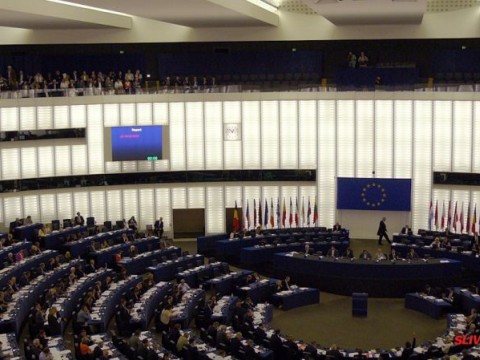
Border controls reinstated as a last resort, with risk assessments
Targeted rules for large-scale health-emergencies
On Tuesday, Parliament and Council reached an agreement on reforming the Schengen Borders Code.
The reform aims to strengthen free movement within the Schengen area, clarify rules, and reduce the amount of temporarily reinstated border controls inside the zone.
Under the new rules, Schengen states can respond to a serious threat to public policy or internal security, for example involving terrorism or organised crime, by authorising temporary border controls. MEPs secured a maximum limit of maintaining border controls for two years, with a possible further prolongation of one year.
In the case of a public health emergency that concerns several members at a time, and puts at risk the functioning of the entire Schengen area, the Commission can authorise border controls for periods of six months.
Before taking the decision to re-introduce border controls, the member states needs to assess the effectiveness, proportionality and side effects of such a decision, and after six months, draw up a risk assessment. When a state has notified others of its intention to reinstate border controls, the Commission can launch consultations between that state and its neighbours.
Targeted solutions instead of blanket border controls
To ensure a coherent response to large-scale health emergencies on the basis of experiences from the Covid-19 pandemic, the law foresees harmonised rules for entering the EU from third countries in such situations. This approach would exempt EU citizens and residents benefitting from free movement and essential travel from such restrictions.
As an alternative to border controls, the new rules would promote police cooperation in border regions. Where third-country nationals with irregular status are apprehended during joint patrols and there is evidence they have arrived directly from another EU country, these people may be transferred to the other EU country if it participates in joint patrols. MEPs successfully pushed for additional safeguards for transferring minors, whose best interests need to be taken into account by both parties to the transfer.
The reform also includes provisions for situations where third countries attempt to instrumentalise migration. Referring to the definition of instrumentalisation in the Crisis situations regulation, it lays out procedures available to Schengen countries in these situations, including the limiting of border-crossing points.
Quote
Rapporteur Sylvie Guillaume (S&D, France) said: "The Schengen area is one of our most cherished achievements, at the very heart of the EU project, allowing unrestricted travel for more than 400 million people. With this agreement, we have protected the free movement of persons while responding to the challenges that the Schengen Area has faced over the last ten years. We have insisted on clear and limited time lines for internal border controls, criteria for Member States to follow if they want to reintroduce internal border controls, and we have laid down harmonised procedures to be applied at external borders in cases of future pandemics. That is why I am satisfied with the outcome reached this evening."
Background and next steps
In a judgment in April 2023, the Court of Justice of the European Union ruled that border controls re-installed because of serious threats may not exceed six months, and can only be extended when a new threat arises, unless there are exceptional circumstances putting the overall functioning of the Schengen area at risk.
Next, the provisional agreement needs to be formally adopted by the Parliament and Council before it can enter into law.
